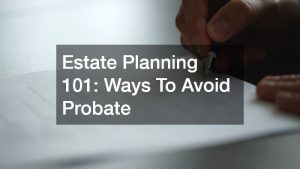According to the Federal Emergency Management Agency, there are 13 million Americans who live in properties at high risk of flooding. However, that number might not be accurate. An independent study discovered that the true number may be almost 41 million people.
Floods caused around $3.75 billion worth of damages to properties last year alone. You might think your home is in no danger from flooding if you live in an urban or suburban area, but you couldn’t be more wrong. Thanks to rampant urbanization and loss of absorbent surfaces such as parks and green spaces, urban areas are at risk of retaining gallons upon gallons of water. Cities can be up to 40 percent impervious surfaces, leading to disasters such as the 2017 Houston flash flood.
You can prevent being a victim of flooding damage by taking the proper precautions.
Preventing Flood Damage
The maxim about prevention being better than a cure holds true even with flooding. Here are 4 methods you should consider if you know or suspect your home is in an area with a high risk of flooding.
-
Mind your landscaping
The area around your home is the best defense you have against flooding and you should manipulate it to your advantage. Professional erosion control can easily reduce the flood risk of your real estate property, but there are other ways to do so:
First, reduce the amount of hardscaping and concrete surface on your property since it prevents the ground from absorbing rainfall. You should increase the amount of vegetation such as shrubs and turf. Aside from keeping your gutters clear of debris that could block water, you can build swales, which are depressions that channel runoff away from your property.

-
Get the right insurance
If you even suspect that your property is susceptible to flooding, you should immediately get flood insurance. This is especially true if you live in what’s called a 100-year floodplain. These areas experience disastrous flooding the likes of which only occur once every century on average. Flood insurance prevents you from spending all your savings should your home be damaged by floods.
-
Prevent sewage backflow
Your basement can become a swamp during a rainstorm if the local sewage systems can’t handle the excess water. Floods can cause sewage to flow backward through your pipes and burst in your basement. Installing backflow prevention valves keeps your basement from flooding and your home’s foundation turning into a slurry.
-
Go higher
Elevation is one of the best defenses against flooding and you should elevate everything. Aside from building up the foundation of your home to raise it considerably above ground, you should also elevate everything else in your home. In your basement, put your boiler on a sturdy pedestal or similar structure so it doesn’t get damaged if water seeps in. You should also make sure your electrical sockets and similar openings are raised higher to avoid electrical incidents during heavy rain.
Floods can sweep away both properties and lives in a few moments. Ensuring your home remains high and dry will not only prevent you from losing thousands of dollars but could also protect you and your family from harm.




